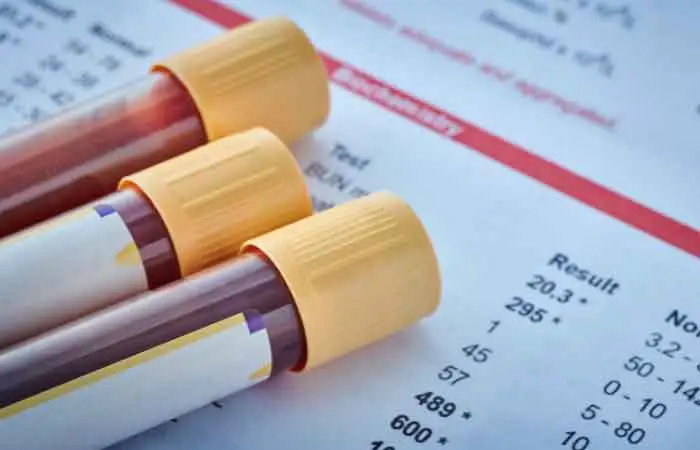Can a Blood Test Detect Memory Loss?
Unveiling the Potential: Can a Blood Test Detect Memory Loss?
Welcome to BrainHub, your portal to understanding the intricacies of the brain and cognitive well-being. In this exploration, we delve into a question that often resonates with those navigating concerns about memory—can a blood test detect memory loss? Join me as we unravel the science behind this inquiry, exploring the nuances of memory diagnostics and the potential role of blood tests in unveiling cognitive health.
Understanding the Landscape: Memory Loss Symptoms and Beyond
Before delving into the realm of diagnostics, let’s briefly navigate the landscape of memory loss symptoms. Memory impairment can manifest in various forms, from forgetfulness and difficulty recalling recent events to challenges in learning new information. Understanding these symptoms provides a foundation for exploring diagnostic avenues.
Can a Blood Test Detect Memory Loss?

Exploring the Link Between Blood and Brain Health
The idea of a blood test detecting memory loss is rooted in the intricate connection between blood and brain health. While traditional memory assessments involve cognitive tasks and imaging studies, recent research has explored the potential of blood-based biomarkers as indicators of cognitive function.
Blood Tests and Biomarkers: Unraveling the Clues
Researchers are investigating specific biomarkers present in the blood that may correlate with cognitive health. These biomarkers include proteins, enzymes, and other molecules that reflect processes occurring in the brain. While this area of study is still evolving, the prospect of a blood test offering insights into memory function is promising.
What Blood Test Is Done for Memory Problems?
Navigating the Diagnostic Toolkit
In the comprehensive toolkit for diagnosing changes in thinking or memory, healthcare professionals often turn to a battery of tests to gain nuanced insights. Alongside cognitive assessments and neuroimaging studies, blood tests have emerged as valuable contributors to the diagnostic landscape.
Blood Tests in Memory Diagnostics: A Crucial Dimension
While blood tests aren’t yet the primary method for diagnosing memory issues, they offer a crucial dimension in understanding the underlying factors contributing to changes in cognitive function. Some of the most common blood tests ordered as part of a diagnostic evaluation for someone with changes in thinking or memory include:
- CBC (Complete Blood Count): This test provides information about the number and types of blood cells, offering insights into potential conditions such as anemia or infection.
- CMP (Comprehensive Metabolic Panel): Examining various metabolic markers, this panel assesses kidney and liver function, electrolyte balance, and blood sugar levels.
- TSH (Thyroid Stimulating Hormone): Assessing thyroid function is vital, as imbalances can contribute to cognitive changes.
- Vitamin B12: Deficiencies in vitamin B12 have been linked to cognitive decline, making this test crucial in the evaluation.
- RPR (Rapid Plasma Reagin): This test screens for syphilis, an infectious disease that, if untreated, can lead to neurological complications impacting cognition.
- HIV (Human Immunodeficiency Virus): Testing for HIV is essential, as the virus can affect the central nervous system, leading to cognitive issues.
Current Limitations and Future Horizons
While these blood tests provide valuable insights, it’s crucial to recognize their current limitations. The complexity of the brain and the multifaceted nature of cognitive health mean that no single test can offer a definitive diagnosis. Instead, blood tests supplement other diagnostic methods, contributing pieces to the intricate puzzle of cognitive well-being.
As research advances and technology evolves, we anticipate the emergence of more targeted blood tests and biomarkers that enhance our ability to detect and understand memory issues. The journey toward precision in memory diagnostics is an ongoing exploration, and we remain committed to staying at the forefront of these advancements at BrainHub.
What Is the Best Test for Memory Loss?
Navigating the Options: Tailoring Diagnosis to Individual Needs
The best test for memory loss varies based on individual circumstances. Neurological examinations, cognitive assessments, and imaging studies like MRI or CT scans are conventional methods. The choice of tests depends on the specific symptoms, medical history, and the need for a comprehensive understanding of cognitive function.
What Blood Tests Indicate Dementia?
Dementia, a condition characterized by cognitive decline impacting daily life, is a complex realm of study. Blood tests exploring markers like beta-amyloid and tau proteins show promise in potentially indicating the presence of dementia-related changes. However, these tests are not yet routine in clinical practice.
The Journey Ahead: Promising Possibilities in Memory Diagnostics
As technology advances and our understanding of the brain deepens, the landscape of memory diagnostics continues to evolve. From wearable devices monitoring cognitive patterns to innovative blood tests exploring novel biomarkers, the future holds promising possibilities for enhancing the precision of memory assessments.
A Glimpse into Tomorrow: The Role of BrainHub in Cognitive Well-Being
Your Partner in Cognitive Health
As a leading Neuroscience center in Dubai, BrainHub remains at the forefront of advancements in cognitive health. Our commitment extends beyond diagnostics to personalized interventions and support for individuals navigating memory concerns. Our Memory Health Clinic in Dubai is a testament to our dedication to empowering individuals on their cognitive well-being journey.

In Conclusion: A Tapestry of Hope and Progress
The question—can a blood test detect memory loss—opens a door to a realm where science, technology, and cognitive health intersect. While blood tests are not yet the sole answer, they contribute valuable insights to the broader tapestry of memory diagnostics.
If you or a loved one are experiencing memory concerns, the journey to understanding begins with comprehensive assessments and expert guidance. BrainHub stands as your ally, offering a spectrum of services tailored to your cognitive well-being.
Let’s embark on this journey together—where science meets compassion, and hope intertwines with progress. Reach out to BrainHub PolyClinic, your partner in unlocking the potential of your cognitive health.




